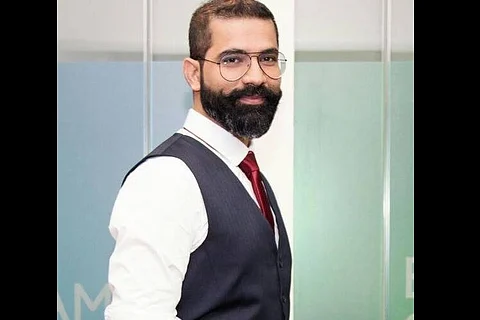

There’s a particular kind of silence that envelops groups and industries in India from time to time. It’s a resounding silence that follows each accusation of sexual harassment or assault levelled at “prominent individuals”.
This time around, it’s the rapidly growing comedy industry that’s shifting uneasily in its seats, as TVF CEO Arunabh Kumar faces complaints of sexual harassment from at least five women. And predictably, the men at the top of this rising industry, men who otherwise have a nearly hyperactive presence on social media, quickly hit the mute button.
And so, it fell on women comics like Aditi Mittal to pick up the baton once more:
Silence from the comedy community is deafening.EVERYONE still"texting contacts"/"verifying facts" inspite of hearing stories abt it for yrs?
— Aditi Mittal (@awryaditi) March 13, 2017
The fact that the diggaj-log of comedy who make videos & even take money from brands for their saleable feminism are quiet today is telling
— Aditi Mittal (@awryaditi) March 13, 2017
Journos calling all the women in comedy to go on record-- NO. Call the men. See how much they defend their brohood now. Enough is enough.
— Aditi Mittal (@awryaditi) March 13, 2017
Finally, as the number of complaints grew, and the voices calling for reactions from other men in the industry multiplied, Rohan Joshi, Ashish Shakya and Tanmay Bhat of All India Bakchod broke their silence, to make the gesture of talking about making workplaces safe from sexual harassment.
Meanwhile, however, a vehement debate has grown on Twitter, attacking those like Aditi who’ve called for more voices to support the victim. Many of those making this counter-argument are calling the entire episode a witch-hunt, and asking for evidence to be produced against Arunabh before he is “condemned”.
Why the witch-hunt argument is misplaced
However, such an argument fundamentally misunderstands what is at stake when women call for men at the top to speak out. As multiple Twitter users commenting on the situation have pointed out, raising a voice here does not automatically have to mean condemning Arunabh.
After all, Arunabh does have the right to a fair investigation and trial on all the allegations. But then, so do the alleged victims of harassment, and this is what the call to speak out is about.
But read TVF’s official response to the original allegation that kicked off the issue, and there’s no sign that they understand this right that both parties hold. “All the allegations made against TVF and its team in the article are categorically false, baseless and unverified… We will leave no stone unturned to find the author of the article and bring them to severe justice for making such false allegations,” the company’s statement read.
The many social media statements that have followed from high-ranking members of the TVF team have also largely followed this line, with only a half-hearted call to women to come forward and make formal complaints regarding the allegations of sexual harassment.
A bro-code of silence in such a context is not so much needed security for the accused, as a disheartening lack of support for the victims. For these women, living in a culture that still tends strongly towards victim-blaming and misogyny, the very act of coming out with these allegations is a frightening and arduous proposition. And when the response they receive is vehement denial from those involved and silence from every other quarter, it only encourages feelings of impunity among aggressors, and of helplessness among victims.
To say that one cannot speak because one wants to be equally fair to the victim and the accused, ignores the fact that sexual harassers carry out their crime because they are confident that the power they have over their victims can shield them from any adverse consequences of their actions. What the call for support to the victim demands is that this power differential be equalised, that an aggressor should not be treated with kid gloves because he’s more popular, successful and powerful than the people complaining against him.
As a society, we have not yet begun to take complaints of sexual harassment completely seriously. Our reactions to such claims more often than not tend to be variations of the “boys will be boys” argument, with advice to women to “avoid” the harasser and not “encourage” him.
Building a culture that credibly takes account of harassment is going to be a long, hard process. It’s not going to happen overnight. But there’s one immediate step men in high positions should take today to help that process along – speak up, not for or against alleged aggressors, but for fairness, impartiality and truth.